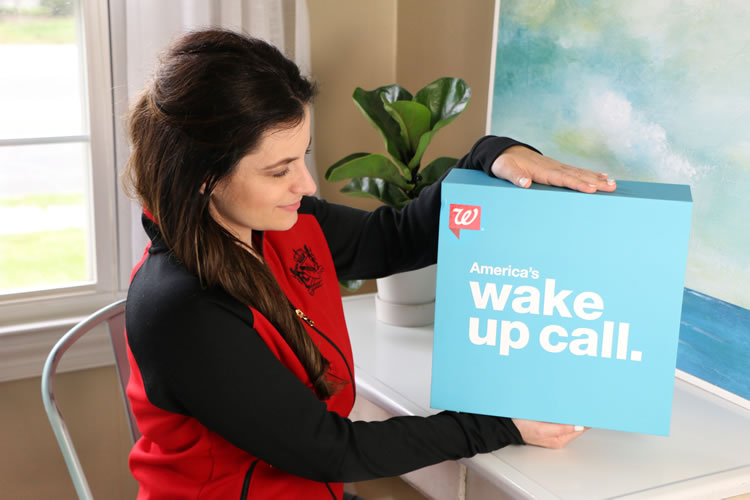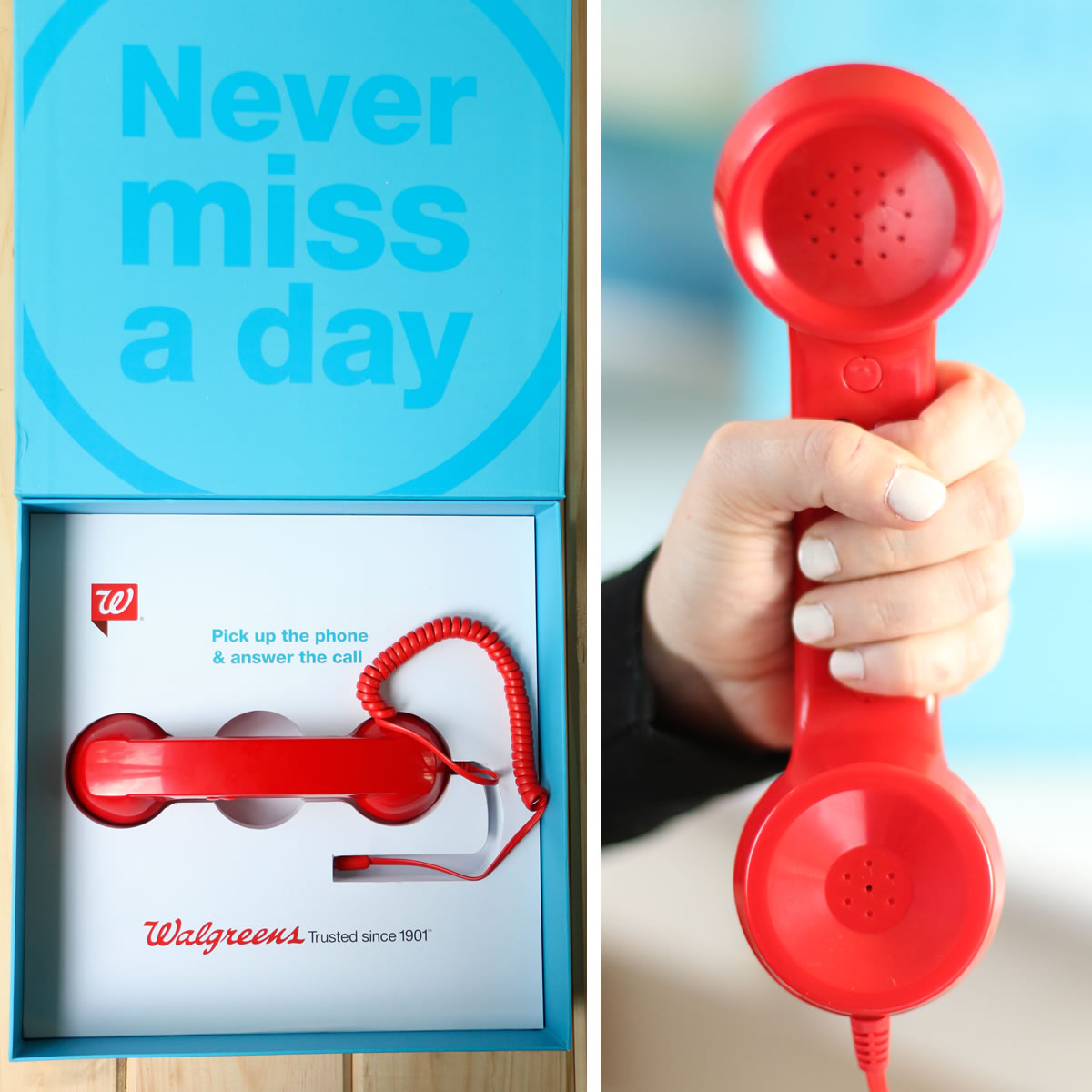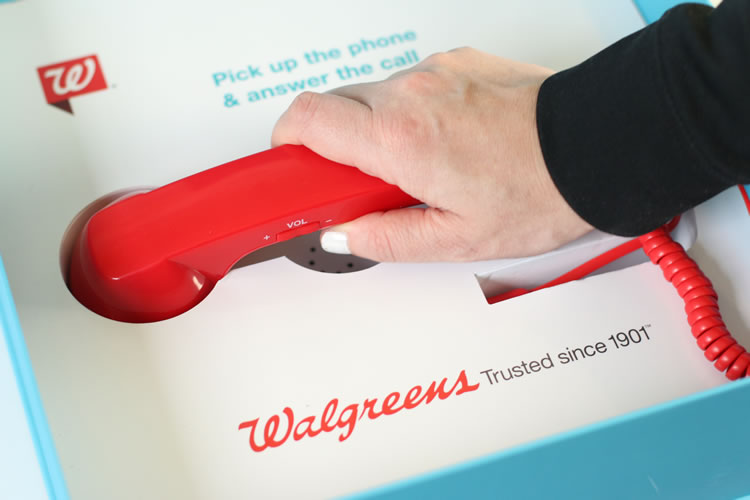* This post is brought to you in partnership with Walgreens. The opinions and information presented here is all ours.
A few years ago I remember feeling so tired I simply couldn’t function. No matter how many hours I slept, I just couldn’t shake the fatigue. And the worst part was I felt like the simplest of tasks felt like a chore. I didn’t feel normal. Not only was I unbelievably tired, but I started to notice other things that didn’t seem quite right. I would walk into a room only to forget what I was in there for, and my anxiety was turning into full blown panic attacks that would wake me in the middle of the night. While I was writing most of these things off as just symptoms of stress, it’s when my hair began falling out that I started to get worried. Like clumps in the shower drain falling out. When I would question close friends and family if they noticed it, they would say “no” or “don’t worry you have tons of hair”. Some even said I was crazy and being paranoid. But the subtle change that wasn’t obvious to the people around me was signaling to me something was off in my body. It was time to make an appointment with my doctor.
After talking to my doctor about some of the symptoms I was experiencing, he recommended that I should have my thyroid hormones be checked. My doctor’s suspicions were right on. A blood test revealed that my thyroid gland was under producing thyroid hormones and my levels were considered lower than normal. It was confirmed: I was hypothyroid.
The American Thyroid Association estimates that about 20 million Americans have some form of thyroid disease, with about 60% not realizing they have anything wrong with them at all. They also report that women are five to eight times more likely than men to experience thyroid dysfunction. With a family history of thyroid issues I wasn’t surprised by my diagnosis and I was happy to finally find out what was going on with me. It was then time to put an action into place to start feeling better.
My doctor gave me an integrative health plan to get my hypothyroidism in check. I was given a plan that included an anti-inflammatory healthy diet, exercise, at least 8 hours of sleep, meditation, supplements and was prescribed a thyroid hormone replacement medication that would help to replace the thyroid hormones my body was low in while easing symptoms.
Here’s why having a thyroid issue made me realize that drug-adherence or taking your meds just as prescribed is absolutely necessary:
For thyroid medication to do its best work and for you to get the best results it has to be taken exactly as prescribed. It’s not like an aspirin or antacid you can pop any time of day. Thyroid medication is finicky. It needs to be taken on a completely empty stomach in the morning about an hour before breakfast for maximum absorption.
The effectiveness of thyroid medication can even depend on how the medication is stored and can be compromised by things like heat, light, and humidity. Ideally it needs to be kept in a cool, dry, and dark place, like a cabinet or nightstand drawer. Think it’s no big deal? A recent Italian study, found that one in 20 hypothyroid patients felt an improvement of symptoms after storing their thyroid medication in a better location.
So for someone who’s not as organized as I’d like to be, it was a bit of an adjustment to get it all right. I stuck to it, followed directions and within a few weeks I was feeling better. Within a few months my hair was growing in thick like it was before.
Let’s face it, no one likes taking medication. But taking your prescribed medication as directed is really important. For someone like me, it can mean the difference between feeling better and being able to accomplish the things I need to do. It means I got to have my hair grow back in and feel normal again.
Lack of prescription drug adherence or compliance, otherwise known as not taking your meds as prescribed, is a major issue in the U.S.. It’s estimated that nearly 100 million Americans don’t follow their prescriptions correctly while 33% of those prescriptions are never even filled.
Here are some shocking statistics reported about some serious conditions and patients just not taking their meds from familywize.org:
- 33% of kidney transplant patients don’t take their anti-rejection medications.
- 41% of heart attack patients don’t take their blood pressure medications.
- Half of children with asthma either don’t use their inhalers consistently at all.
Kind of crazy , right? There’s a lot of reasons why many of us don’t take our medication properly. Whether it’s forgetfulness, not wanting to be inconvenienced, religious fasting, or not understanding exactly how a medication can be taken, there’s a real need for people to understand how important drug-adherence really is. For the individuals mentioned in the statistics, not taking their medication properly can be a life and death situation. For others it can mean the difference between something working to help your loved one’s health or having their condition worsen.
Here’s some tips I’ve picked up along the way to make sure I stay on track with my medication:
- Have a talk with your doctor about why they’re prescribing you or a family member a particular medication, so you can understand how it can help. The more you know the better you will feel about taking it.
- Never just stop a medication without speaking to your doctor first.
- When in doubt about taking your medication always chat with your pharmacist or doctor when you’re in doubt. Don’t make the decision on your own.
- Some people like me at first felt ashamed that I had to take medicine. When I realized how much better I felt with it, combined with a healthy diet and other lifestyle changes I realized I was being silly.
- If you have multiple medications to take throughout the day, buy a pill box to help keep you organized. You can find them marked with the days of the week, times of the day (morning, noon and evening), and can find them in 7 or 14 day styles.
- Try setting a reminder on your phone so you can remember to take your medicine at the right time each day. You can even download the Walgreens App for some awesome tools like a pill reminder to help you remember when to take your medication. From the app you can even refill your prescription or chat with a pharmacist when you have any questions about your meds 24 hours a day.
Do you know someone that needs a ☎️ Wakeup Call when it comes to taking their meds as prescribed? Help spread the word about the importance of drug-adherence. It can save a life!
Better Living uses affiliate links. If you make a purchase through them, we may receive a small commission (for which we are deeply grateful) at no cost to you.






